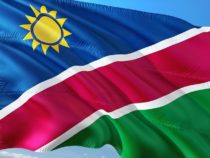Many students know about New Zealand based on the location where The Lord of the Rings was filmed, as matter of fact, this has led to a revolution of new filmmakers to travel and explore the programs available in the country. We will go through what universities are available, what the cost of living comes out to, and how to determine which major will cost more or less based on tuition.
We will also cover what native languages are spoken in New Zealand, along with identifying which language may be better suited for students to learn before arriving to the country.
Universities in New Zealand:
- University of Waikato
- University of Auckland
- University of Otago
- University of Canterbury
- Victoria University of Wellington
- Auckland University of Technology
- Lincoln University New Zealand
- Manukau Institute of Technology
- Ara Institute of Canterbury
- Auckland Institute of Studies
- UNITEC Institute of Technology
- Nelson Marlborough Institute of Technology
- Universal College of Learning
- Whitecliffe College Of Arts and Design
- IPU New Zealand
- Waiariki Institute of Technology
- Open Polytechnic
- Eastern Institute of Technology
- Christchurch Polytechnic Institute of Technology
- Laidlaw College
- South Seas Film & Television School
- Carey Baptist College
- University Of Auckland Business School
- Media Design School
- Massey University, Wellington
- New Zealand College of Chiropractic
- Massey University, Auckland Campus
- Aoraki Polytechnic
Student Cost of Living
The cost of living greatly differs from city to city in New Zealand. New Zealand is known to be an expensive country but it’s also because they do have a low crime rate, incredible higher education centers, and provide a fantastic way of life.
There are private rental hostiles or accommodations that ask for rent per week. So, students would be looking at $200-$350 USD rent per week. New Zealand may be better experienced by international students if they choose to stay on campus at the university that they are studying at.
When it comes to groceries and utilities, a students should budget for around $1,600 – $2,500 USD per month. That is to live comfrotably enough to not worry about not being able to pay for a bill.
Cost of Tuition
When it comes to tuition there are great differences between the north and southern part of the country. Students can expect to spend between (for the Southern part of New Zealand) either NZ$15,000–$20,000. Or the north part of the country registers at about NZ$18,000 – $25,000.
Most international students that come to New Zealand to study without a scholarship will normally spend around $15,000 USD to $20,000 USD for the first undergraduate year.
Languages Spoken in New Zealand
Are there different languages spoken in New Zealand? Yes! The Māori language is native to the country. Along with New Zealand Sign Language. English is also considered as one of the three main languages; however, the country will have different slang than the United States.
International students should either learn Māori or the native country sign language because this would greatly increase the student’s chances of securing a scholarship.
Other languages commonly heard in the country are Samoan, German, Spanish, Yue, Hinidi, French, and Tagalog.






